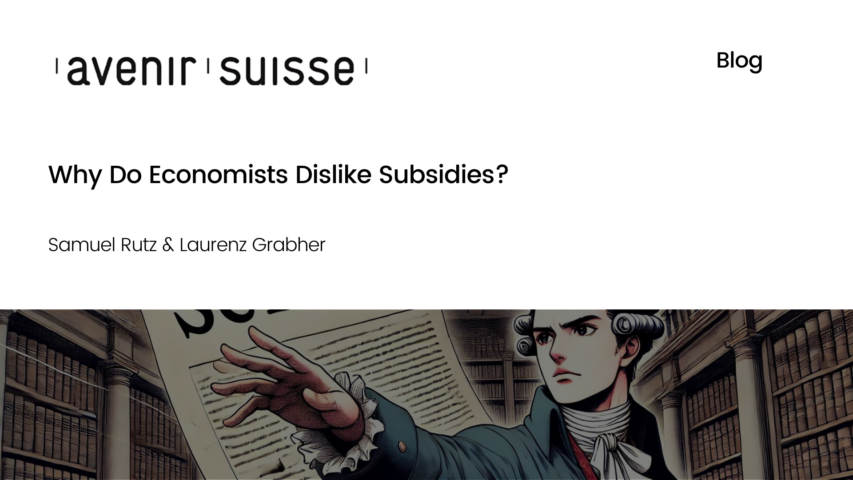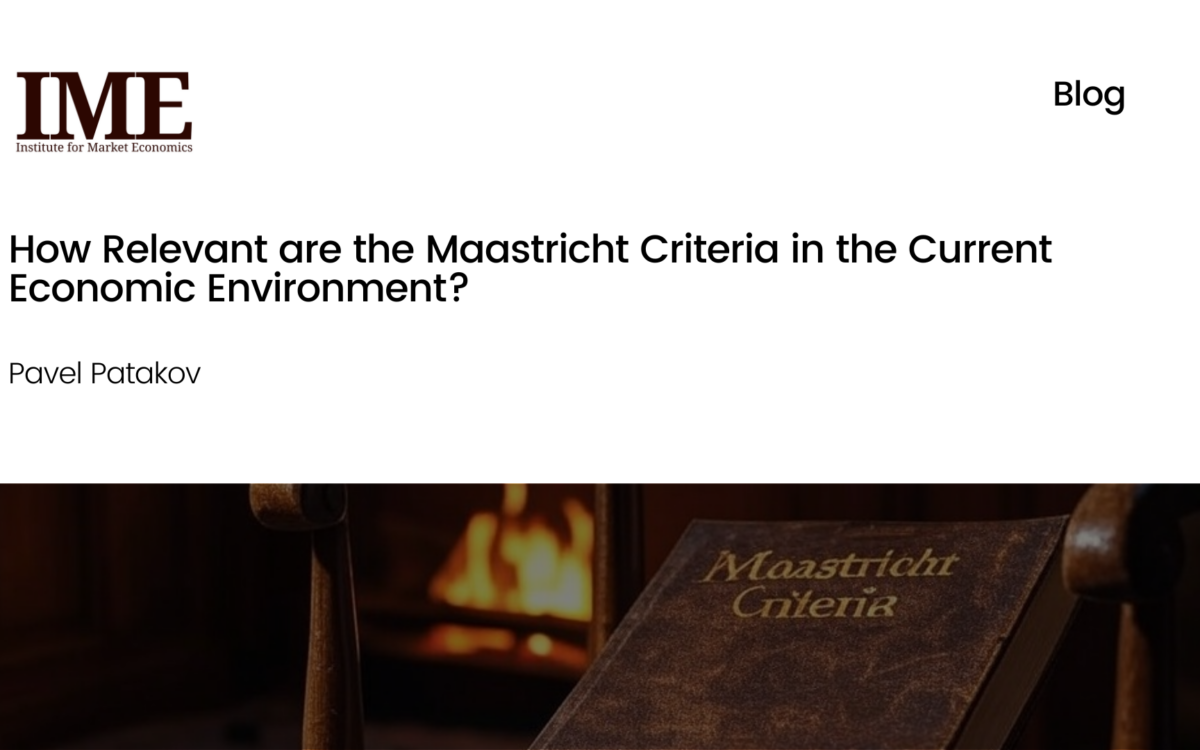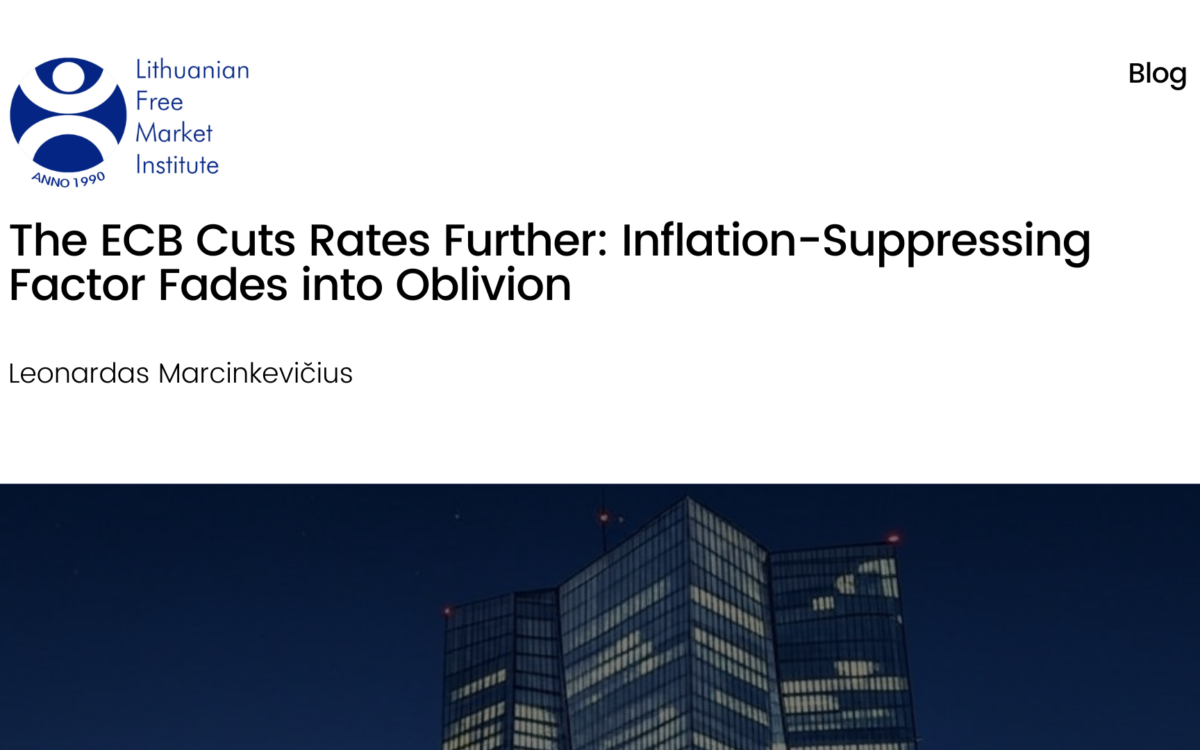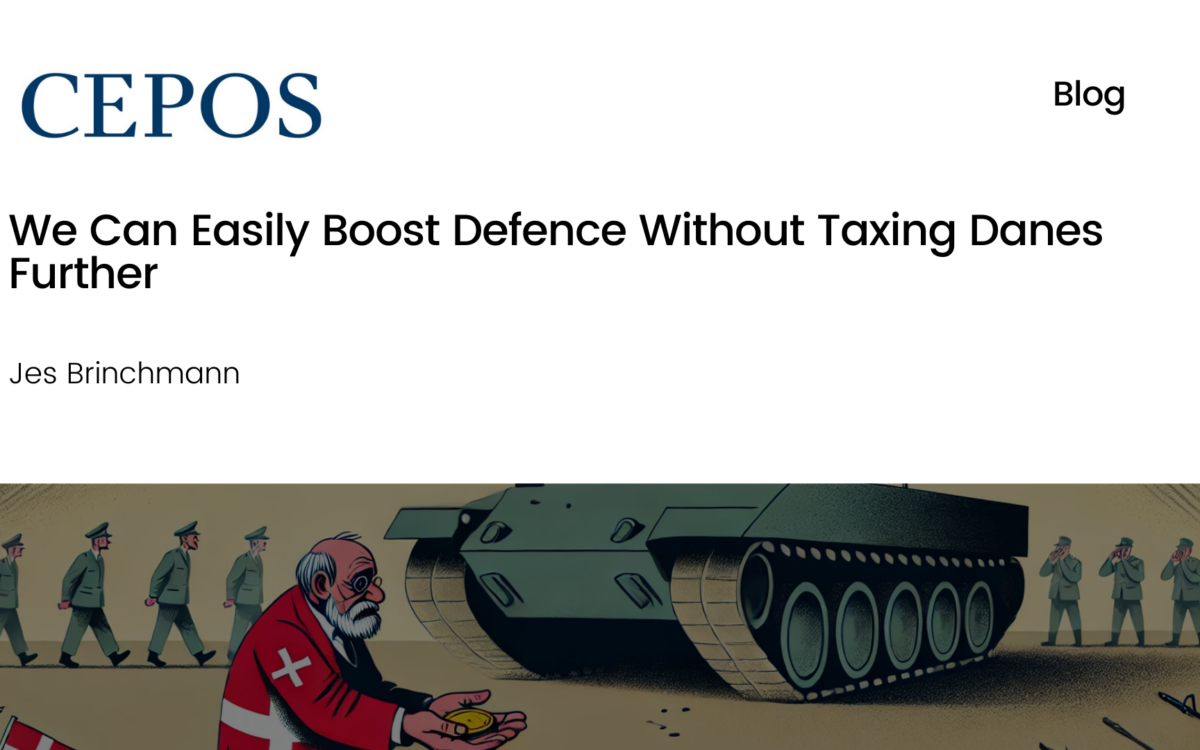Why Do Economists Dislike Subsidies?

Why Do Economists Dislike Subsidies?
Samuel Rutz & Laurenz Grabher // 1 August 2024
Until the early 2010s, government subsidies in Europe were on a downward trend, partly because of the increasing prevalence and enforcement of competition and state aid rules. In recent years, however, subsidies have become socially acceptable again and ‒ as was the case during the coronavirus pandemic, for example, or currently in the context of rising goods and energy prices ‒ are the knee-jerk response of politicians proffering a panacea. From an economic perspective, however, it has long been clear that subsidies are an extremely static instrument that is all too often accompanied by market distortions and warped incentives in the allocation of resources.
Lack of cost transparency and distorted market outcomes
Especially when subsidies take the form of direct state payments, inefficient market outcomes are to be expected. A good example is the subsidization of specific carbon-neutral energy sources to combat climate change: On the one hand, the desired increase in the price of fossil fuels to reflect their true cost fails to materialize; on the other hand, it leads to an even greater lack of cost transparency in the subsidized alternatives. Even though the artificial cheapening of a carbon-neutral source of energy creates certain incentives to switch, it also makes energy as a whole cheaper, which weakens the pressure to use it sparingly. In addition, there is often a lack of coherence when subsidizing individual technologies, with a great risk that individual subsidies will set different (implicit) prices for carbon emissions. More cost-effective and efficient results could be achieved by sending out a uniform price signal ‒ for instance in the form of a CO2 levy ‒ to all economic actors. This would also eliminate the sometimes seemingly arbitrary decision as to who exactly receives subsidies or which technologies are to be used to reduce emissions.
It’s not just in the climate sector, where in normal times there’s widespread agreement that the state should ensure cost transparency, that the danger of inefficient subsidies is great. Especially in areas where there is no actual market failure, the subsidy-induced cheapening of production factors such as land, water, labor or capital tends to lead to an overuse of scarce resources. This is shown to be absurd in agricultural policy, for example: For example, more than 30 million Swiss francs are spent annually on reducing the price of sugar and promoting its sale. At the same time, however, there are repeated calls for the introduction of incentive taxes to protect the population from excessive sugar consumption. The same game can be observed in tobacco farming and the prevention of smoking.
Free-rider effects, crowding out, etc.
Subsidies regularly cause other economically harmful effects in addition to the aforementioned market distortions. For example, subsidies are often not very accurate because the state simply does not have the necessary information to know which technologies, projects, processes, etc., are promising and should be supported. It’s equally difficult to prevent the so-called free-rider effect by assessing which projects would be realized even without government funding and therefore need not be subsidized at all. That these are not simply theoretical concerns is shown, for example, by a 2017 study by Econcept for the City of Zurich, which found that 80 percent of recipients of subsidies for building technology would have implemented the corresponding measures even without subsidies. It’s similarly inefficient if the state’s subsidies simply crowd out private investors and there is thus no overall increase in the funds invested.
Interest-driven politics and rent-seeking
Subsidies can thus lead to high opportunity costs, are often poorly targeted, and often result in market distortions and misaligned incentives. In the worst case, they do more harm than good and are simply a waste of taxpayers’ money. So how can it be that subsidies enjoy such high popularity in day-to-day politics? The simple answer in terms of political economy would be that subsidies are a perfect means of distributing gifts, which increases the acceptance and popularity of politicians and their chances of (re-)election. The fact that these gifts are ultimately paid for by the taxpayer is often lost in the discussion: While a subsidy usually only benefits a few, the costs are shared by many.
This is also the reason why subsidies are so good for promoting particular interests, which in turn encourages interest groups to engage in lobbying activities (so-called rent-seeking). Such subsidies are often particularly harmful because they’re protectionist and structure-preserving in nature. The damage to the general public is twofold: Not only are inefficient subsidies granted, but substantial, unproductive costs may also be incurred for the rent-seeking itself.
To make matters worse, once subsidies have been granted, they’re almost impossible to remove. This is true even if the original reason for the subsidy has long since become superfluous. The abolition of subsidies regularly fails owing to vehement resistance from the interest groups that profit from them. Ultimately, subsidies are extremely static instruments that lack the necessary dynamism to respond to changing conditions.
This blog was originally published on Avenir Suisse's blog. For further information on the topic and ideas on how to counteract the harmful effects of subsidies, please refer to Avenir Suisse's publication 'Switzerland, Land of Subsidies'.
EPICENTER publications and contributions from our member think tanks are designed to promote the discussion of economic issues and the role of markets in solving economic and social problems. As with all EPICENTER publications, the views expressed here are those of the author and not EPICENTER or its member think tanks (which have no corporate view).



